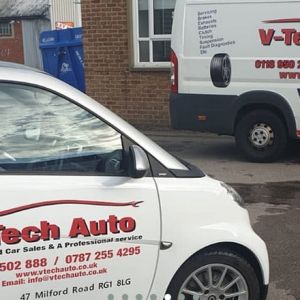Car services are a vital component of keeping your vehicles running efficiently, safely, and effectively, while preventing potentially costly repair bills. With routine maintenance, mechanics identify many of the most common car faults before they worsen, leading to suitable repairs, staving off vehicle breakdowns and maintaining vehicle health. This article focuses on a number of the most frequent car faults identified as a result of regular servicing, the methods in which they are repaired, and the significance of services such as the MOT, which verify a vehicle’s safety compliance.
Problems With Your Car's Engine
One gets noticed, however, during car servicing Reading a vehicle is when the engine is misfiring. Engine misfires happen when the ignition cycle has been disturbed. This is often a result of faulty spark plugs; ordinarily, the spark plugs may have failed or most often need to be cleaned or replaced; other causes of misfires are damaged ignition coils or issues with the fuel injectors. Mechanics do inspections of the vehicle spark plugs, cleaning where necessary; they also inspect the fuel injections. Engines having persistent misfires must be investigated thoroughly to ensure an undamaged engine. Any oil leak will be noted during a repair visit and will be easily identifiable by dark spots marking the ground under the vehicle. The repair of oil leaks involves identifying the source of the leak and replacing any worn gaskets or seals. Routine oil changes are often part of regular car service, where a mechanic will check a vehicle's oil levels; routinely changing oil in a vehicle will slow the wear and corrosion of engine parts.
Common Car Issues Detected During Regular Servicing
Battery Problems
Car batteries can die due to a number of reasons: age, corrosion on battery terminals, or simply drawing more electricity than can be charged. During a service appointment, a technician will test the battery for charge & health; if they determine it is weak, they will recommend a jump or replacement & clean the terminals to improve connection. A regular service appointment is the location where preventative battery maintenance occurs to avoid a sudden battery failure, which could leave the driver stranded.
Brake System Wear
The braking system is checked and inspected in depth to ensure safety during servicing. Worn pads and discs leading to squeaking noise or reduced ability to stop are a common problem. During service, a technician measures the pad's thickness and will recommend replacement of pads and/or discs when they become worn beyond safe limits. Brake fluid levels must also be checked and refilled to preserve the hydraulic pressure. According to MOT inspection tests, regular brake checks occur during servicing to guarantee safe operation.
Ash Suspension & Steering
A rattling suspension and/or stiff steering may indicate worn bushings, a failing strut or low steering fluid. Service checks can uncover these issues early; in most situations, a technician will tighten any loose parts, replace bushings, top off power steering fluid and change shocks in order to restore smooth handling. Addressing suspension issues during a service prevents uneven tyre wear and dangerous driving conditions.
Transmission and Clutch Issue
Transmission problems, such as slipping gears and difficulty in shifting, can be diagnosed through service. When a car is serviced, the service technician may check the transmission fluid quality and levels during service intervals and suggest a fluid change to ensure smooth gear transitions, among other reasons. For a clutch pedal that is stiff or not working properly, the technician assesses and repairs the issue by adjusting or replacing worn clutch cables or worn clutch discs. Regular servicing and maintenance of the transmission leads to improved comfort of driving the car and the longevity of the transmission.
Cooling System Problems
Another common problem found in car service is coolant leaks. Most coolant leaks are caused by a cracked radiator or a failed seal. The car mechanic will locate the leak, replace any faulty parts, and refill the coolant, preventing overheating of the engine. Keeping the cooling system working effectively is critical to avoid engine damage and costly repairs.
Importance of the MOT to Car Servicing
The MOT (Ministry of Transport) test is an annual, legislated inspection for cars in many countries to ensure the roadworthiness of vehicles. Regular servicing of a car will improve the odds of passing the MOT test by solving any issues with brakes, lights, tyres, exhaust emissions, or steering. A well-serviced car assists in better car operation, and makes it more likely to legally comply with safety standards and environmental regulations, reducing the possibility of failing the MOT Reading.
Conclusion
Regularly servicing your car is vital for spotting and fixing common problems: engine problems, battery failures, brake wear, suspension issues, exhaust issues, transmission problems, and leaking coolant. Getting repairs done promptly, as needed during regular car servicing, can help improve the lifespan of your vehicle, keep it safe to drive, help maintain maximum fuel efficiency, and ensure it achieves a satisfactory level of compliance with the requirements of an MOT. Car owners should follow their manufacturer's recommended service schedules and consult with qualified, professional mechanics and service providers to keep their vehicles running in top condition.







